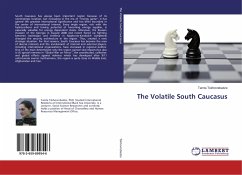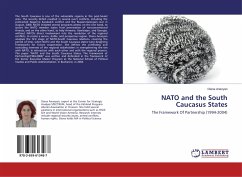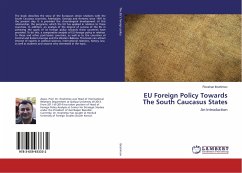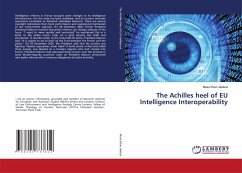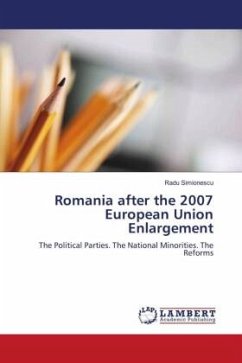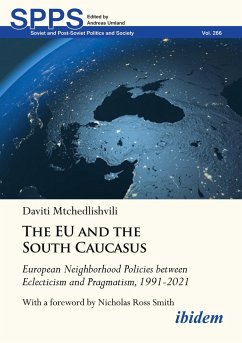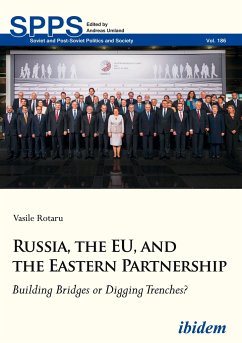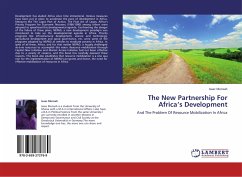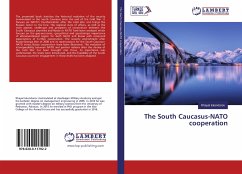
The South Caucasus-NATO cooperation
Versandkostenfrei!
Versandfertig in 6-10 Tagen
41,99 €
inkl. MwSt.

PAYBACK Punkte
21 °P sammeln!
The presented book sketches the historical evolution of the security environment in the South Caucasus since the end of the Cold War. It focuses on NATO's transformation after the Cold War and brings the Russian factor to the fore. The regional state of affairs, as well as the main aspects, challenges and prospects of cooperation between the South Caucasus countries and Russia or NATO have been analyzed which focuses on the geo-economic, geopolitical and geostrategic importance of aforementioned region for both NATO and Russia with reciprocal expectations of further cooperation. The security e...
The presented book sketches the historical evolution of the security environment in the South Caucasus since the end of the Cold War. It focuses on NATO's transformation after the Cold War and brings the Russian factor to the fore. The regional state of affairs, as well as the main aspects, challenges and prospects of cooperation between the South Caucasus countries and Russia or NATO have been analyzed which focuses on the geo-economic, geopolitical and geostrategic importance of aforementioned region for both NATO and Russia with reciprocal expectations of further cooperation. The security environment after Russia-Georgia War of 2008 and its repercussions for the South Caucasus-NATO versus Russia cooperation have been illustrated. The evolution of interoperability between NATO and partner nations after the demise of the Cold War has been brought into focus, its importance was underscored, the levels were introduced, and the feasibility of the South Caucasus countries' engagement in those levels has been analyzed.



